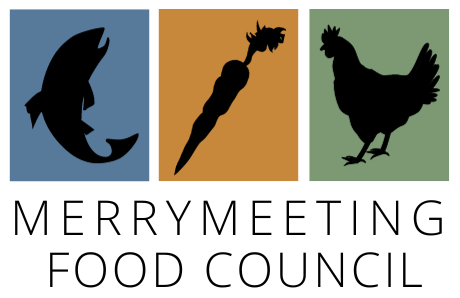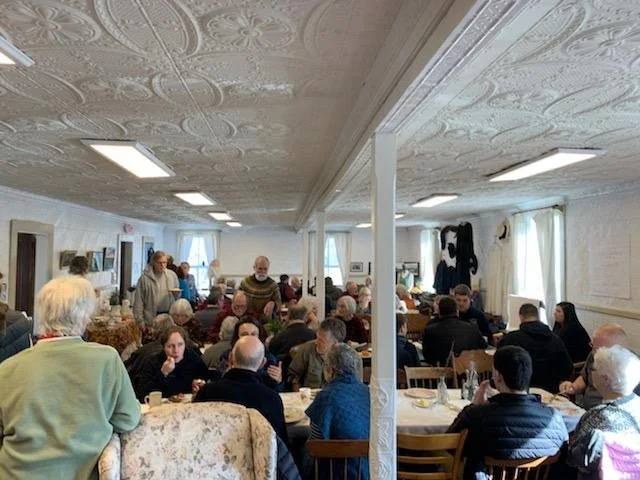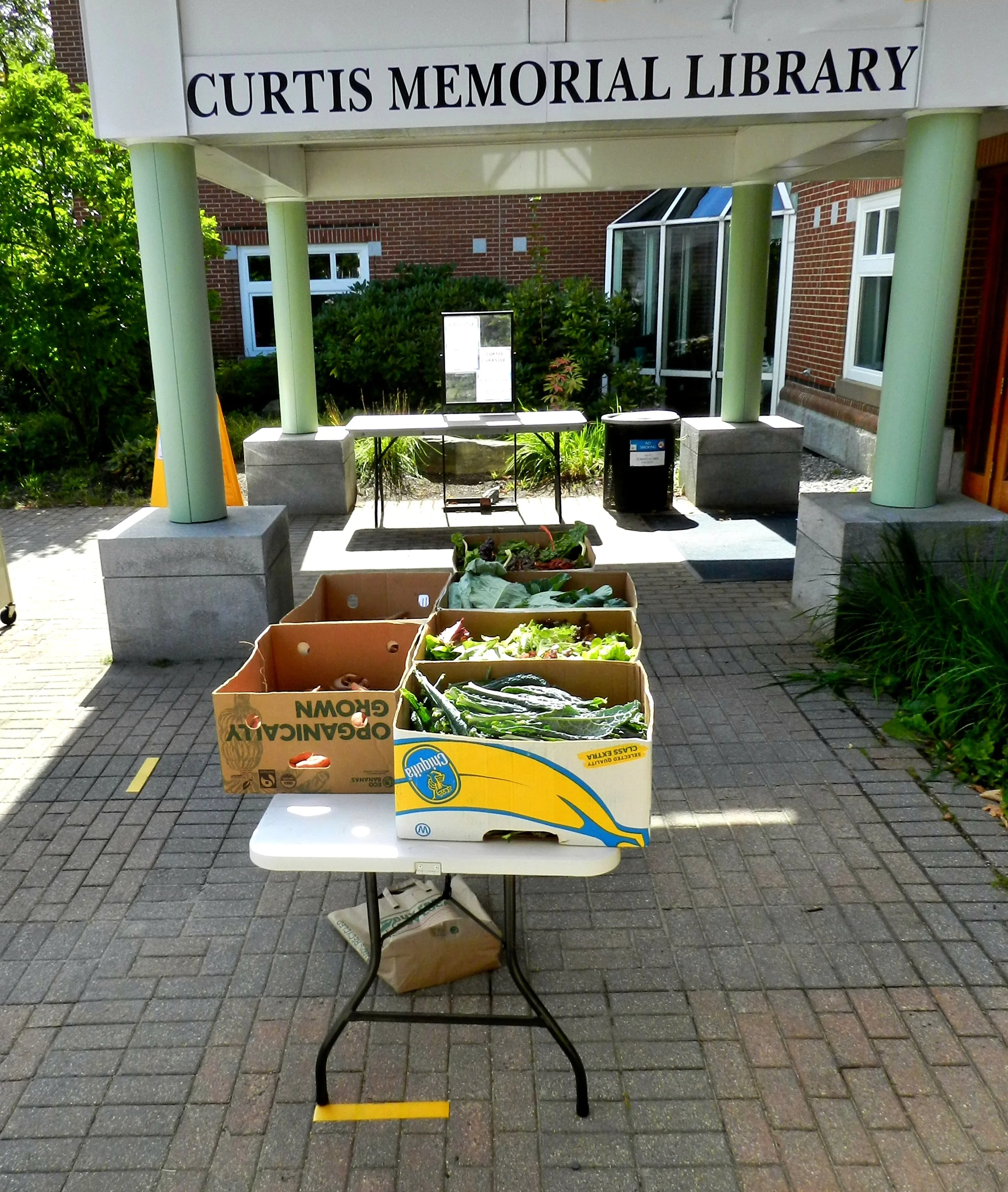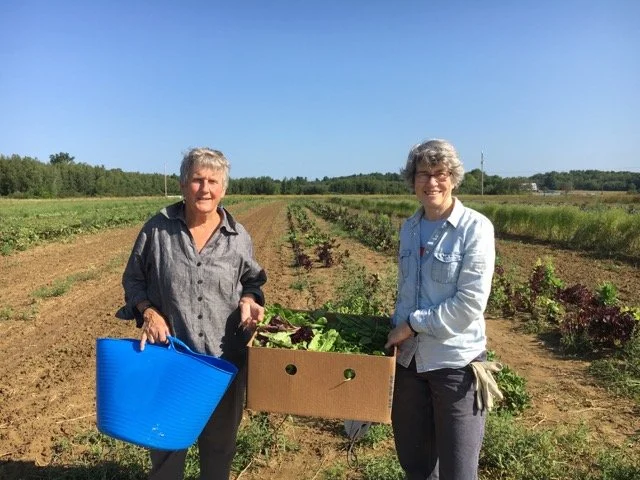Assessing Community Resources and Needs
In 2018, Merrymeeting Food Council (MFC) launched a Community Food Assessment designed to…
Participants at Food Access Round Table (2019)
Understand how people access food,
What the community viewed as the dominant barriers to food access,
And what the community thinks may be the most effective solutions.
We formed a Work Group consisting of individuals from the healthcare industry, state and federal food education programs, community members, and food system non-profits. We hosted focus groups, used surveys, and interviewed over 100 community members to learn what barriers individuals face when accessing food. Our interviews also included representatives of more than 20 organizations working to address food access to gain insight into the barriers organizations face when seeking to support their clients’ needs.
MFC also hosted a Food Access Round Table in 2019 - to learn more and to see the presentations, click here.
Implementation
Between 2019-2020, we began implementing some solutions based on our findings. These solutions included community-based solutions like…
Bowdoinham Community Meal (2020)
Community meals,
Work to highlight transportation as a major food access barrier,
And program assessment to decrease stigma.
We worked with community members in Bowdoinham and Richmond to build community meal programs. Bowdoinham’s monthly meals got up and running quickly, starting in October 2019 and were very successful with 65-100+ residents at each meal. Richmond was set to start their meals just as COVID-19 unfurled in the U.S. in early 2020.
Community meals are valuable because they utilize the power of individual community members to support and connect with one another, they are open to anyone, and have no cost associated with attending the meal. Their greatest power lies in their ability to build community, strengthening each person’s support network.
Aiding Transportation
Transportation is a significant barrier to food access for many in our region, mentioned during nearly all individual and organizational interviews. MFC began working with agencies in our area to strengthen and expand the Volunteer Transportation Network (VTN) facilitated by People Plus in Brunswick. While MFC paused our efforts on transportation during the pandemic, other people and organizations’ have moved forward efforts to expand the regions’ VTN.
Reducing Stigma
Stigma has an extremely large influence on how people access food, or feel about themselves when seeking support in accessing food. MFC formed the Merrymeeting Gleaners in 2016, and expanded this program to include a program called the Sharing Table. This program hosts tables with free gleaned produce available to whomever would like to partake. Sharing Tables are typically located in community centers that draw in people from all segments of the community. These open set-ups welcome and encourage anyone to make use of them. They seek to normalize food sharing, as well as supporting one another in accessing food. Between 2018-2019, the Merrymeeting Gleaners piloted and grew the Sharing Table program to six communities: Arrowsic, Bath, Bowdoin, Brunswick, Topsham, Georgetown and Harpswell with the support of key farm partners. Now a program of MCHPP, the Gleaners have continued to expand, and for the first time ran these as year-round tables at sites in Bath, Brunswick, and Topsham during the winter of 2021.
Food Security & Wellness
In parallel with the Food Access Assessment work, and as another way to increase conversations about food access in our region, MFC worked to build connections between food security and wellness. MFC brought together Good Shepherd Food Bank (GSFB), Mid Coast Hospital (MCH), and Mid Coast Hunger Prevention Program (MCHPP) in 2018 to implement the Hunger Vital Sign program. This is a two question food security screening administered to patients. The program was piloted at the walk-in clinic in Brunswick starting in early 2019 and is now being expanded to all of Mid Coast Hospital’s clinics in the region. Through the program, any patient screening positive for food insecurity, receives an emergency food kit (from GSFB and available at MCHPP) to help them until they can connect with other community resources through the hospital’s referral system and resource guides developed by MFC. The goals of this program are to: 1) connect food access and health for both medical professionals and individuals, 2) normalize seeking support for accessing healthy foods, and 3) increase knowledge of food support resources in our communities.
MFC has given presentations on our findings to food access networks across our region including our Food Access Roundtable held in June 2020. We have shared draft versions of a final report with program partners and supported organizations working to address community identified barriers and implement solutions. Together, as a network, by sharing information and working together we continue to strengthen food access in the region.
Ongoing Work
Merrymeeting Gleaners
In July 2021, the Merrymeeting Gleaners became a program of Mid Coast Hunger Prevention Program (MCHPP). Gleaning work is well suited to MCHPP as they are the largest food access program in the region, and they have the capacity to support an ever growing volunteer base, as well as expand on our processing efforts and needs for storage. Transitioning the Gleaners to MCHPP has allowed MFC to focus on piloting other programs to support and enhance the local food economy in our service area. Read more about the history of the Merrymeeting Gleaners here.
Today, MFC continues to:
Maintain Community Nutrition Resource Guides
Work to expand acceptance of SNAP and Maine Harvest Bucks at area farmers’ markets
Support communities interested in implementing food sovereignty ordinances
Convene community partners to address barriers to food access for all in our communities




